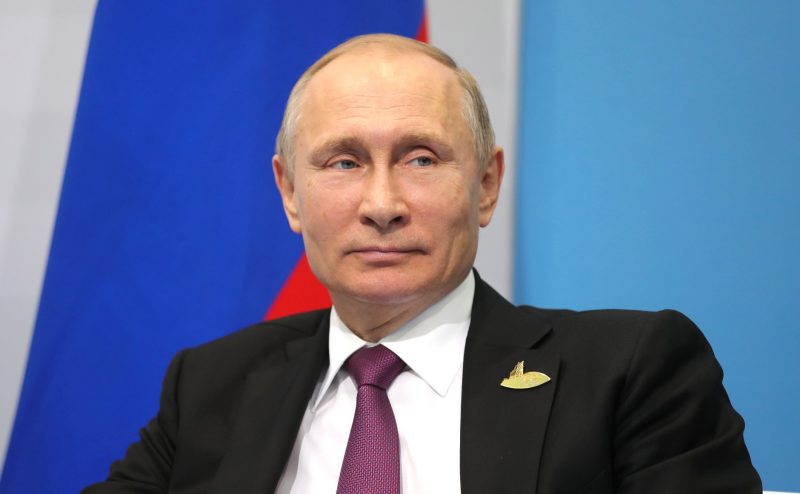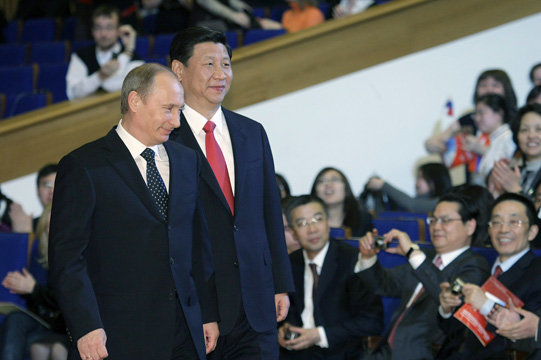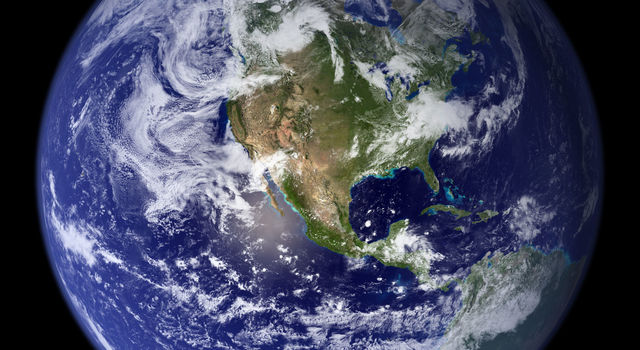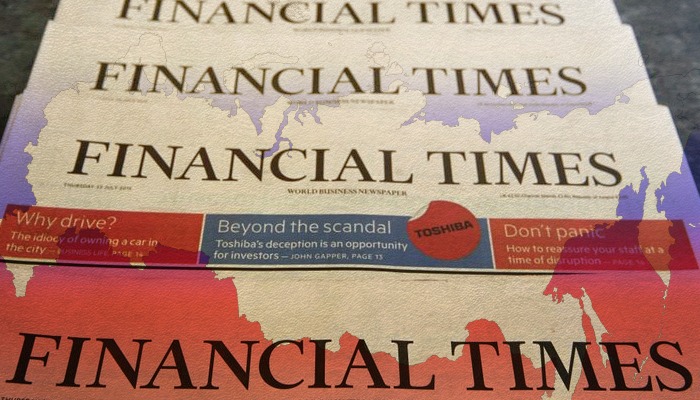After the collapse of the Soviet Union, Putin, who recovered Russia which was politically, economically and socially dispersed, once again succeeded in making Moscow one of the center of the world in foreign policy.
Through the period we have been passing in which the relations between Turkey and Russia are deepening and the paths of the two countries are aligned,understanding Putin and analyzing his tendencies in domestic and foreign politics have become more burning than ever.
Although Putin’s interview with the Financial Times last week has not been taken into consideration in the Turkish media except for a few articles, it contains important clues about the Russian State’s view of the present and vision of the future.
GLOBALIZATION IN WHOSE FAVOR?
Upon the collapse of the Soviets, which relied on the imperial legacy and claimed to offer the world a different model of life and economy through socialist experience, Russia became the main target of the Atlantic-centric globalization attack.
This order, in which international monopolies stuck to humanity like a burr, imposed division and cultural standardizing on the people.

Wikimedia Commons
Putin, on the other hand, takes a different approach to globalization and makes the following assessment of its consequences, including diplomatic moves against the United States; “Has anyone ever given a thought to who actually benefited and what benefits were gained from globalization, the development of which we have been observing and participating in over the past 25 years, since the 1990s? China has made use of globalization, in particular, to pull millions of Chinese out of poverty. (…)In the United States, the leading US companies –the companies, their managers, shareholders and partners – made use of these benefits. (…) The middle class in the United States has not benefited from globalization; it was left out when this pie was divided up.”
Putin also does not neglect to give Trump an implicit message of support over the middle class emphasis; “The Trump team sensed this (harms of globalization to the middle class) very keenly and clearly, and they used this in the election campaign. It is where you should look for reasons behind Trump’s victory, rather than in any alleged foreign interference.”
There are two ways to consider the Russian leader’s statements about globalization and Trump’s travels:
- 1- To accelerate the USA’s withdrawal from Europe and Asia by supporting Trump’s policies that abandon global leadership and provide space for Russia.
- 2-To support Trump’s clash with pro-globalization monopolies that threaten Russia’s interests.
Unless we consider Putin’s support for Trump in different viewpoints, we can end up making mistakes such as declaring Trump anti-establishment and heroizing him or not being able to comprehend Russia’s deep politics.
CHINA, EGGS AND BASKETS
Another intriguingpart of Putin’s Financial Times interview is his response to relations with China.
Putin and Xi Jinping, in contrast to Stalin and Mao’s indirect hostility policy, are improving relations between the two countries to higher levels.

Putin, who had nullified USA’s policy of isolating China through rapprochement with Russia by applying “reversed ping-pong diplomacy”, underlined the will of the Alliance with the statement at the Belt and Road Forum in Beijingin May saying, “China’s actions perfectly coincide with Russia’s plans.”
Putin, as a reply to the Financial Times’ question “Are you putting too many eggs in the China basket?”with his diplomatic refinement, declares that the Moscow-Beijing line has been established, and tries to reassure the USA. “First of all, we have enough eggs, but there are not that many baskets where these eggs can be placed. Secondly, we always assess risks. Thirdly, our relations with China are not motivated by timeserving political any other considerations.We do not have to join anything, and we do not have to direct our policy against anyone. In fact, Russia and China are not directing their policy against anyone. We are not against anyone, we are for ourselves.”
Putin, reversed the question, “Are you afraid of the armament of China?”asked to him in order to provoke the relationship between China and Russia, with the following answer; “China’s total defence spending is $117 billion, if memory serves. The US defence spending is over $700 billion. And you are trying to scare the world with the build-up of China’s military might?”
When we evaluate Putin’s general Chinese politics and recent statements as a whole, we reach the following conclusions;
- 1- Putin pursues a policy of deepening cooperation with China in terms of common interests,
- 2- When cooperating with Beijing, he is careful not to position the US on the opposite front,
- 3- In the event of a possible crisis between Washington and Beijing, he cares to maintain a flexible diplomacy that leaves enough space for the mediating role without constituting a party between the two giants.
- Having information, at least the outline, on issues such as West Asia and Belt Road Project, Putin’s approach in relations with China, will help Turkey to develop policies.
ESTABLISHED ORDER AND DEMOCRACY
One of the greatest arguments that the West has used against the East, and thus Russia, has been democracy for years.

Putin’s response to this policy, which puts Western-type democracy at the center of the world, should be evaluated by the forces who are striving to fight against imperialism and to build a new world;“Incidentally, the President of France said recently that the American democratic model differs greatly from the European model. So there are no common democratic standards.
And do you, well, not you, but our Western partners want a region such as Libya to have the same democratic standards as Europe and the United States? But I am sure that, (…) you will agree with me at heart. I do not know whether you will publicly agree with this or not, but it is impossible to impose current and viable French or Swiss democratic standards on North African residents who have never lived in conditions of French or Swiss democratic institutions.
They tried to impose something that they had never known or even heard of. All this led to conflict and inter-tribal discord. So why should we do the same in Venezuela? Is it necessary to humiliate Latin American nations so much in the modern world and impose forms of government or leaders from the outside?”
Not only does Putin condemn the uniform imposition of Western democracy, but he also emphasizes the collapse of Western values, particularly liberalism; “(In the West) The ruling elites have broken away from the people.The obvious problem is the gap between the interests of the elites and the overwhelming majority of the people. There is also the so-called liberal idea, which has outlived its purpose. Our Western partners have admitted that some elements of the liberal idea, such as multiculturalism, are no longer tenable.”
In summary, Putin declares that the Western-centered world has been politically, economically and socially collapsed, while he is signaling that, in terms of the establishment of the New World, he will pursue a policy that focuses on the alliance with China but does not close the doors to the USA completely.
The question that has yet to be asked to Putin is possibly the most important one: “Mr. President, as the West collapses, on what cultural, social and economic basis do you predict the New World will be founded?”
Putin’s world seems to be on the agenda of humanity for many years.
It is explicit that there will be no place in the New World that is being established for the policies and the politicians who cherish the demeaning manners, lack the ability to listen to and manage different ideas, and reduce the world to black and white.
















Leave a Reply